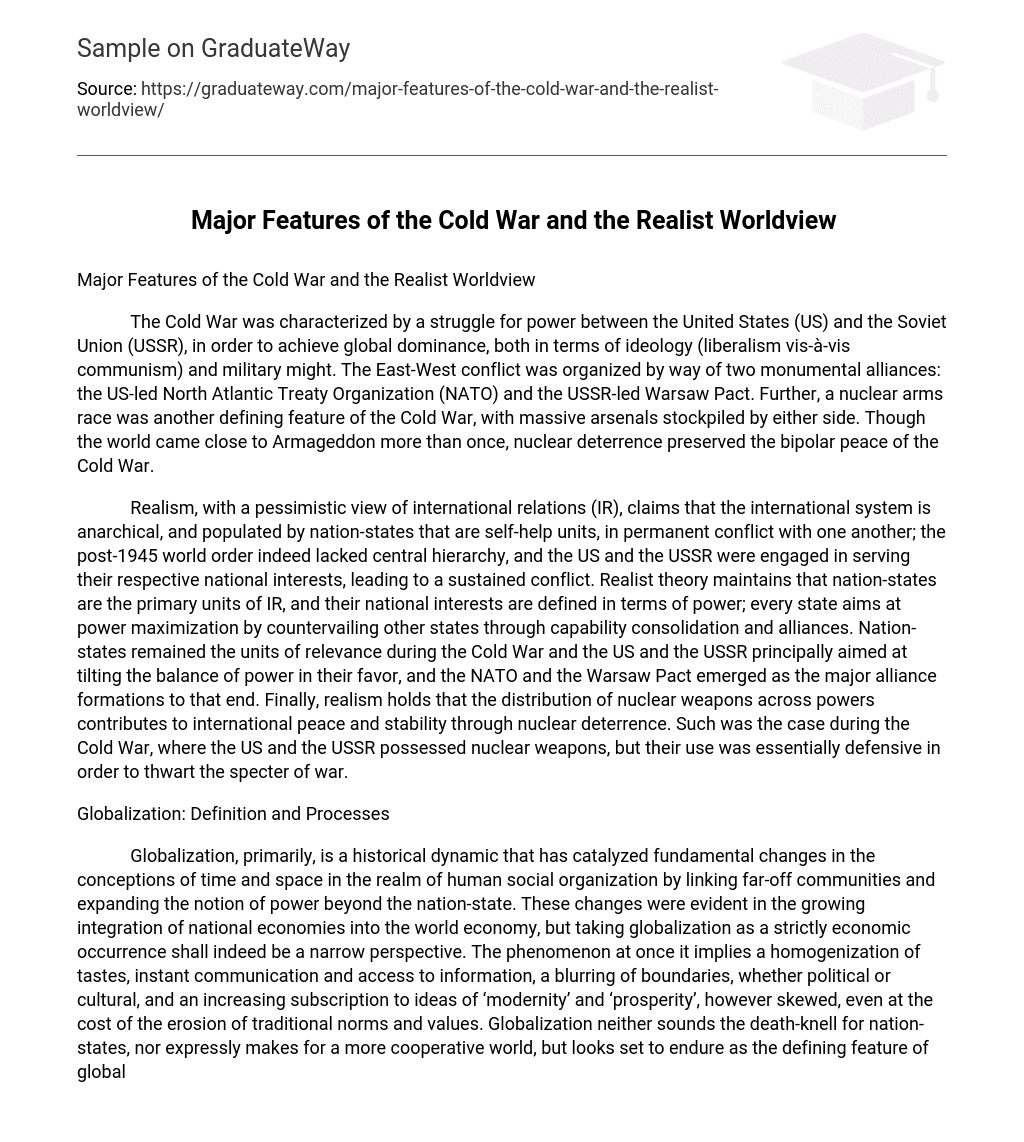The Cold War was characterized by a struggle for power between the United States (US) and the Soviet Union (USSR), in order to achieve global dominance, both in terms of ideology (liberalism vis-à-vis communism) and military might. The East-West conflict was organized by way of two monumental alliances: the US-led North Atlantic Treaty Organization (NATO) and the USSR-led Warsaw Pact. Further, a nuclear arms race was another defining feature of the Cold War, with massive arsenals stockpiled by either side. Though the world came close to Armageddon more than once, nuclear deterrence preserved the bipolar peace of the Cold War.
Realism, with a pessimistic view of international relations (IR), claims that the international system is anarchical, and populated by nation-states that are self-help units, in permanent conflict with one another; the post-1945 world order indeed lacked central hierarchy, and the US and the USSR were engaged in serving their respective national interests, leading to a sustained conflict.
Realist theory maintains that nation-states are the primary units of IR, and their national interests are defined in terms of power; every state aims at power maximization by countervailing other states through capability consolidation and alliances. Nation-states remained the units of relevance during the Cold War and the US and the USSR principally aimed at tilting the balance of power in their favor, and the NATO and the Warsaw Pact emerged as the major alliance formations to that end.
Finally, realism holds that the distribution of nuclear weapons across powers contributes to international peace and stability through nuclear deterrence. Such was the case during the Cold War, where the US and the USSR possessed nuclear weapons, but their use was essentially defensive in order to thwart the specter of war.
Globalization, primarily, is a historical dynamic that has catalyzed fundamental changes in the conceptions of time and space in the realm of human social organization by linking far-off communities and expanding the notion of power beyond the nation-state. These changes were evident in the growing integration of national economies into the world economy, but taking globalization as a strictly economic occurrence shall indeed be a narrow perspective.
The phenomenon at once it implies a homogenization of tastes, instant communication and access to information, a blurring of boundaries, whether political or cultural, and an increasing subscription to ideas of ‘modernity’ and ‘prosperity’, however skewed, even at the cost of the erosion of traditional norms and values. Globalization neither sounds the death-knell for nation-states, nor expressly makes for a more cooperative world, but looks set to endure as the defining feature of global politics and economics in the future.
The processes of globalization are essentially economic, political, and cultural. It is characterized by a stretching of such activities across vast geographical spaces, in that events in one part of the globe have effects in many other parts; the global nature of the financial crisis of 2008 bears testimony to this fact.
The political, economic, and cultural realms share a greater degree of interconnectedness now than at any other time, and efficient and quick modes of transport and communication have increased the pace at which newer technology, products, and even ideas travel around the world. Time and space have increasingly collapsed, with symbols like the golden arches of McDonald’s or the Apple iPod emerging as icons of a global culture. Globalization, therefore, is ever more marked by deepening and growing linkages between the local and the global.





